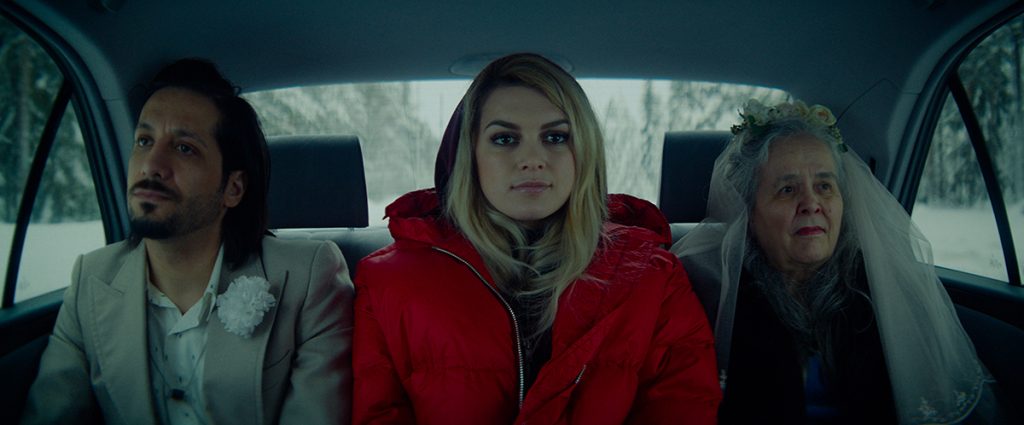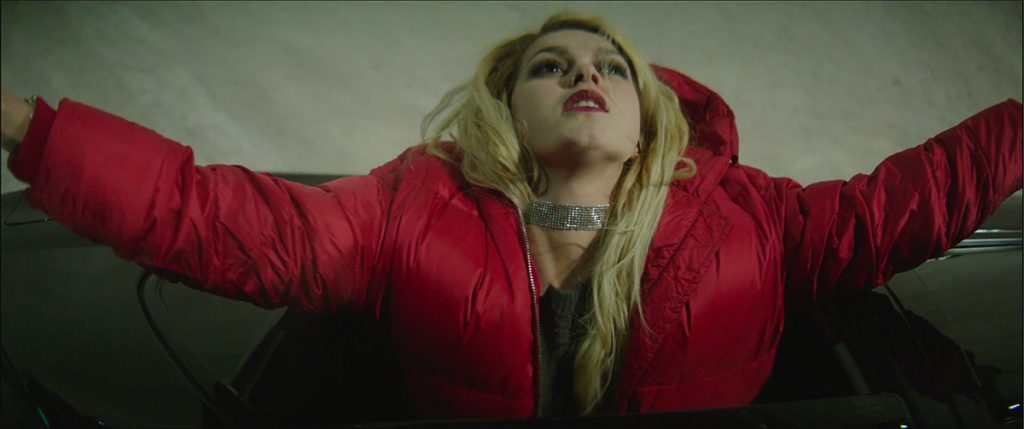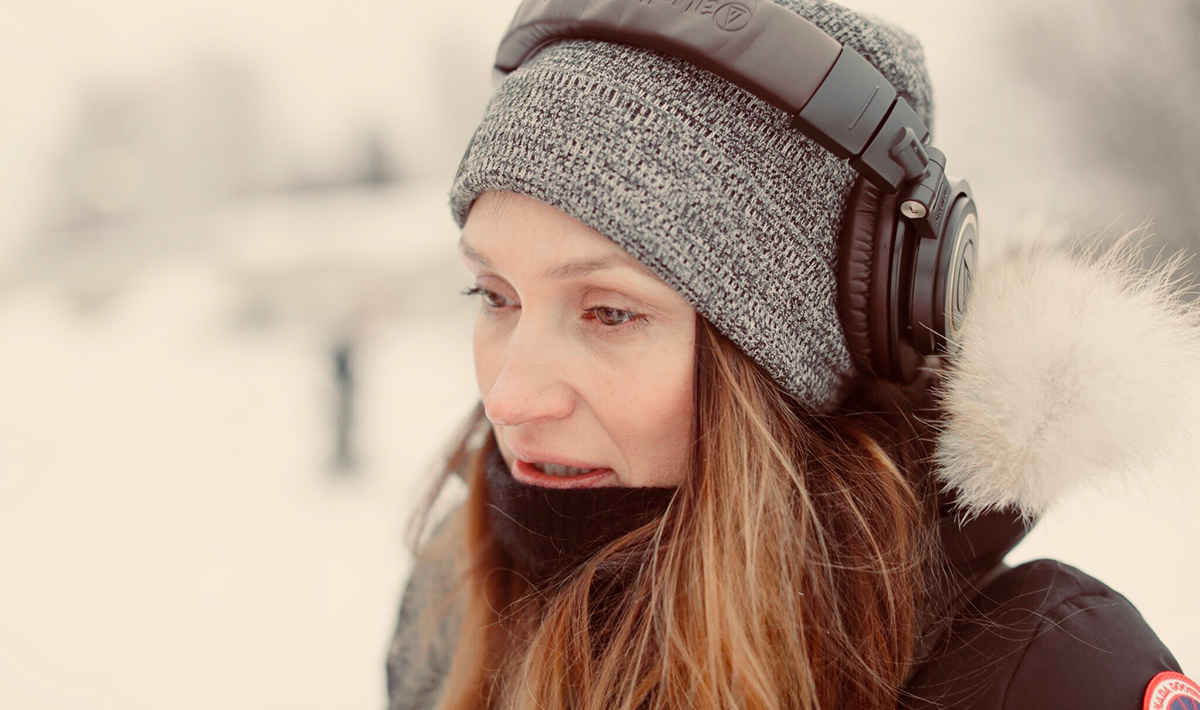When Miia Tervo replies to my phone call, she tells me she is walking by Rantavitikka in Rovaniemi on her way to her mom’s place. “I have about twenty mins to talk, after that, I’ve promised to go build a snow fort.” Well-known for her short films, Miia (b. 1980) has gained more public knowledge in the recent months along with the film Aurora that came out in the theatres in January. For a brief moment, we discuss our mutual home town Rovaniemi and go through both of our family histories searching for common acquaintances. Our conversation quickly shifts to Paris when Miia reminisces summer 2007 she spent in the city writing and messing about.
The beginning of the phone call gives a good touch to Miia’s world: there’s a lot of good stories, they are honest, plain and sincere. Whether it consists of women’s substance use problems, rootlessness or immigration issues, things are discussed – and they are discussed directly. Aurora, the first feature film by Miia, brings out exactly these themes. Mimosa Willamo plays Aurora, a young girl with an addiction problem and fear for commitment, who spends her life partying and working as a nail technician in the Mecca of the arctic suburb of Rovaniemi. Yet her life takes a turn when she meets Darian (Amir Escandari), an immigrant who is trying to cope in the icy environment. The encounter does not go easily, instead, it demands change and adjustment from both parties.

Miia tells the project started from a script called Nakit silmillä (Sausages on the Eyes) that she worked on. The story was about a young woman with an addiction problem. The script never became ennobled to a film, and Miia carried on working with the short films. Soon she was offered a script from where she could draw a lot from: “it didn’t work as a movie, but there was a lot of good ideas and elements from which I developed especially the character of Juha (Chike Ohanwe) to the movie.” Juha is one of the most successful characters in the movie: Ohanwe plays a local family man who is openly racist towards Darian – and he himself is dark-skinned.
“I started to get interested in the form of a romantic comedy, and all that can be done and experimented within the limits of the genre. And how could it be done well! It really can’t be that goddam hard to make a good romantic comedy.”
During the process of writing, the elements of a comedy-drama started to change more towards a romantic comedy, Miia tells. This was influenced by the story of the director’s cousin: she had met an immigrant at a local hypermarket Prisma with whom she had deeply fallen in love with. “I started to get interested in the form of a romantic comedy, and all that can be done and experimented within the limits of the genre. And how could it be done well! It really can’t be that goddam hard to make a good romantic comedy.” However, Miia wants to avoid excessive classifications and says that her movies do not easily fit in with just one category.
The scenery of the movie Aurora follow the same familiar convention as in Miia’s short film Santra ja puhuvat puut (Santra and the Talking Trees, 2013); Helsinki and the focus on towns are left behind; instead, the countryside, suburbs, and small towns are seen and heard. And one’s roots are sought out. Miia says the choice of location was unconscious, yet natural: “for me, it is good to tell about the things and worlds that I have an honest connection to. Sure, I could place a movie to Kerava, for example, but I can’t just use the location as a setting, the environment has to feel like it’s mine.” The image of Rovaniemi that the film Aurora conveys is welcome after the northern lights and reindeer clichés: real life, joys and sorrows with apartment building views. Also, the female image that the movie transmits seems familiar in all its straightforwardness when women are at least as racy and blunt as men are. “It came really naturally. I just wrote about what I saw. You know, a woman is freer and more independent here than in the South. Gender isn’t a defining factor: you can be obscene and racy, and most Laplander women are.”

When I ask Miia about her dreams and projects for the future, she tells she has many of them, most of which are still in the drawer. “The movie Aurora has changed a lot of things, and I have been offered a lot of new projects which has been great. And I’m not usually the type of person who would talk a lot about their movies before they are ready. I think that it’s maybe a kind of Rovaniemi attitude, that we don’t brag about things beforehand. Like kinda when you go pick berries. For sure you won’t tell anyone up front that I’m going to pick 80 litres of blueberries. But after you have the 80 litres, and someone asks how much you got, you just say quite well. And when they say, well tell me how much? Weeeel, quite well. Well, tell me! Weeeeel… about 80 litres.”
Miia Tervo’s short film Santra and the Talking Trees is presented at Institut finlandais on Sunday, March 31st as part of the La Finlande en 3 films festival. Miia’s first feature film Aurora is on view at Reflet Medicis, just across the street from Institut finlandais on Friday, March 29th at 8 pm.
Check the details of the programme here.
Images from the film Aurora
